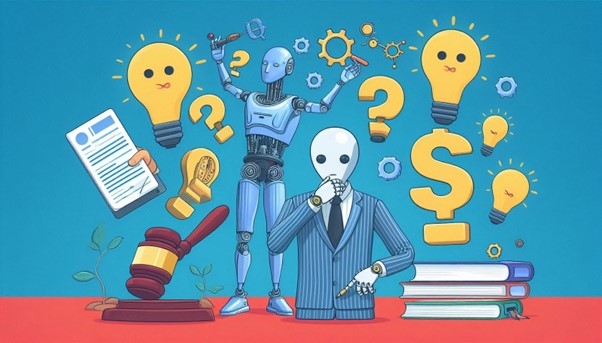In this AI-powered age, social media platform use has significantly increased.
At the same time, most businesses and individuals are targeting these users through social media marketing. For them, consistent content creation is crucial to brand awareness or self-promotion.
Many users have started using AI content to meet their content creation needs, such as post descriptions and ad copy. Moreover, reposting others’ written content without properly crediting them is another way they may engage their audience.
In this post, you will have an understanding of whether these methods of creating content affect your profile or not.
Plagiarism in terms of social media
Plagiarism is the act of intentionally or unintentionally sharing others’ written content.
Mentioning the original writer’s name is not as popular on social media as on other content management systems like WordPress, Shopify, etc. As a result, people don’t hesitate to copy-paste that content and claim their own. Also, in the world of social media, where billions of users post countless pieces of content, it is often difficult to know who the original author was.
However, that doesn’t mean copying someone else’s words or ideas and posting them under your name without attributing the original author is good practice. Such an act will always be considered plagiarism, and people involved may also endure uncalled-for consequences.
Does social media plagiarism have serious effects?
Social media platforms have created an environment where reposting or sharing others’ content as your own for marketing and promotional purposes is a widespread practice.
Most social media platforms have strict rules for posting audio, video, graphical, and written content. However, the policy for text content is not as strict as other types of content. But it doesn’t mean that you are allowed to steal other people’s written content. If you do plagiarise, you might face the following issues that may damage your professional image:
Decreased credibility
Whether you are a social media influencer or marketer, the most crucial factor for your profile is your credibility. Your audience decides whether to trust you based on your content. Being a popular creator, if you post copied content, you might experience lower credibility. Simply put, plagiarised content posted on your social media handle may create a bad image in followers minds, tarnishing your credibility. Many people may not value your perspective like before.
Reduced organic reach
Once you lose this trust, your audience may start ignoring your content. This, in turn, causes poor engagement for your profile. As a result, social media algorithms detect low engagement metrics and reduce the reach of your content. Consequently, you may fail to grab the attention of followers and prospects despite posting your narrative about a product, service, or incident. This reduced organic reach will limit your ability to convey your perspective on various issues. You will also fail to compel people to follow your CTAs.
Copyright strike
When authors discover that you’re using their content without crediting them, they may immediately send you a copyright strike that requires you to delete the content. Your account could be deleted for more than one copyright strike. Sometimes, the problem gets even bigger, and you may face a lawsuit due to copyright infringement, whether you have plagiarised content accidentally or intentionally.
Plagiarism and AI content
Generally, plagiarised content either contains word-by-word text of original content or a paraphrased version. However, most AI content writing tools claim to write unique content from scratch by taking ideas from other relevant content in their database without paraphrasing.
That’s why, technically, AI content doesn’t fall under the umbrella of plagiarised content. While AI content is not considered copied content, it doesn’t mean you can use it openly. Presenting AI content to your audience and claiming it as your own is unethical. The AI-generated content might not align with the reader’s intent. Although these tools can write content according to the provided outline or prompt, they might not create compelling stories.
Sometimes, the AI writer might use false information to defend an argument. For instance, AI-based chatbots or writing modules may include false or aged facts and figures in your posts. This phenomenon may tarnish your credibility and lead to a poor professional image. This causes misleading proofs to your audience that might harm some aspects of their social life. That’s why it is risky to blindly rely on AI content writing tools.
Methods to avoid plagiarism
Preventing plagiarised content on social media helps you maintain your credibility and support your image as a unique and original content creator.
There are different methods to ensure the originality of content. Here are some simple ones to help you check your content.
- Make sure to credit the original authors by mentioning their username and profile.
- Create a pledge-free environment by reporting unattributed content promptly.
- Ensure the uniqueness of your content by using an advanced plagiarism checker.
- Understand the terms and copyright policies of platforms that you use.
- Provide yourself enough time to create unique content.
All the above methods are helpful, but checking your content through a plagiarism detector provides you the extra benefit of saving time.
Wrapping up
The originality and creativity of a content creator are crucial factors in social media marketing. Blindly trusting AI content and posting other creators’ content can affect your profile negatively.
While doing so, the most common problems you may face are losing audience trust, getting low organic reach, and facing a copyright strike. One of the best practices before posting the content is checking its uniqueness using a plagiarism checker.
After fully understanding whether to use AI or plagiarised content, you should practice creating your unique and trustworthy image on social media platforms.
“The opinions expressed by BizWitty Contributors are their own, not those of BizCover and should not be relied upon in place of appropriate professional advice. Please read our full disclaimer."







